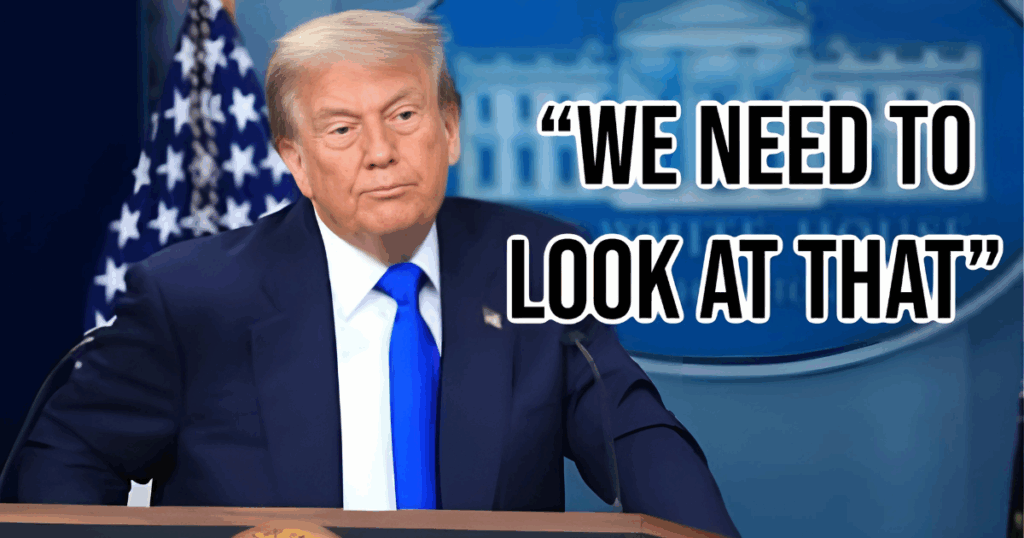Picture this. You’re at a high-roller dinner at a private golf club in New Jersey. Plates cost more than your car, and the guest of honor is the sitting president. Between bites and backslaps, the conversation shifts from Wall Street to weed.
“We need to look at that,” the president says. According to a couple of folks in the room, that’s all that was said. A vague nod toward one of the most watched policy shifts in modern cannabis history.
It’s not the first time this topic has come up. During the campaign, cannabis reform was pitched as a serious part of the agenda. Talk of moving marijuana off the Schedule 1 list and into a more reasonable classification had many in the community cautiously optimistic. There were mentions of respecting state-level programs and pushing research forward. For a moment, it looked like federal policy might finally catch up to public opinion.
But now, several months into a second term, there’s been little more than talk. Other campaign promises have moved quickly. Cannabis remains stalled.
Inside the administration, opinions are split. Political strategists see rescheduling as a simple way to score points with younger voters, veterans, and the growing majority who support legalization. Policy advisers are more hesitant. Some are warning that changing marijuana’s legal status could cause problems with law enforcement practices and create political blowback in conservative circles.
The White House is trying to project a measured approach. A spokesperson told CNN that all legal and policy implications are under review. They emphasized that decisions would be made in the interest of the American people. It’s the kind of response that signals activity, but not urgency.
Meanwhile, industry leaders are getting restless. James Hagedorn, CEO of Scotts Miracle-Gro, says the president has privately assured him more than once that cannabis rescheduling is on the agenda. His company, now deeply involved in the hydroponics side of the cannabis industry, has donated large sums to political action groups supporting reform. So far, those donations have not translated into policy changes.

The new head of the Drug Enforcement Administration has not listed cannabis reform among his priorities. That’s despite saying during his confirmation hearing that reviewing the plant’s status would be a first step. The DEA canceled a hearing on the rescheduling issue that was scheduled to take place the day after the new administration took office. No new date has been announced.
Back at that donor dinner in New Jersey, the cannabis conversation lasted only a moment. But the presence of cannabis executives at the table, including Trulieve CEO Kim Rivers, was no accident. According to recent Federal Election Commission filings, industry-backed political groups have funneled millions into election committees. Trulieve and others have made direct contributions to pro-administration super PACs. Pro-marijuana ads have even run on televisions in White House-adjacent properties.
Public polling continues to show wide support for change. Nearly 60 percent of Americans now support full legalization for recreational use. Just 11 percent believe marijuana should remain fully illegal. And support cuts across party lines.
Cannabis reform advocates say rescheduling is the low-hanging fruit. It doesn’t legalize weed, but it moves it out of the same legal category as heroin. That change would open the door to better research, access to banking for cannabis businesses, and a clearer legal landscape for millions of patients and providers.
But legal gray zones remain. One of the concerns raised in internal policy discussions is whether reclassifying cannabis would limit police ability to use its smell as probable cause for vehicle searches. For an administration that still promotes a tough-on-crime stance, that issue may be a sticking point.
There are also personal factors in play. The president has never been known to use drugs or alcohol and has expressed concerns in the past about cannabis impairing intelligence and increasing accidents. While those statements are not backed by science, they may still influence how the issue is approached behind closed doors.
Outside voices are still applying pressure. Podcasters, political influencers, veterans groups, and cannabis industry leaders are calling for action. A recent poll commissioned by a cannabis industry PAC showed strong support among Republican voters for a range of reforms, including rescheduling and access to financial services for cannabis companies.
But with months passing and no clear movement, the window for reform may be closing. Some analysts believe the administration is waiting for the process initiated under the previous administration to resolve itself before taking further steps. Others worry that indecision may lead to inaction.
In the end, all eyes remain on the White House. And for now, the message from the top remains the same.
“We need to look at that.”
And remember, DEschedule NOT REschedule.

Derek Shirley was born and raised in Pittsburgh, Pennsylvania. At the age of 19, he received a felony for 4 ounces of cannabis. After, he became a “cannabis nomad” living in Ohio, Arizona, and Maine, which he now calls home, and lives with his wife Sequoia and son Haze.
Being a cannabis nomad had its advantages, like relying on all markets for his medical cannabis needs which gives him a unique perspective of the cannabis markets. Currently, he is an influential pro-cannabis activist in the state of Maine who helps local people and small businesses navigate their local and state governments without picking a political party specializing in protecting and preserving the small medical cannabis farmers of Maine. For fun, Derek enjoys screen printing and making cannabis memes under the pseudonym @gettinghighwithcats on IG
You can find more of Dereks articles at Beard Bros Pharms here.

















